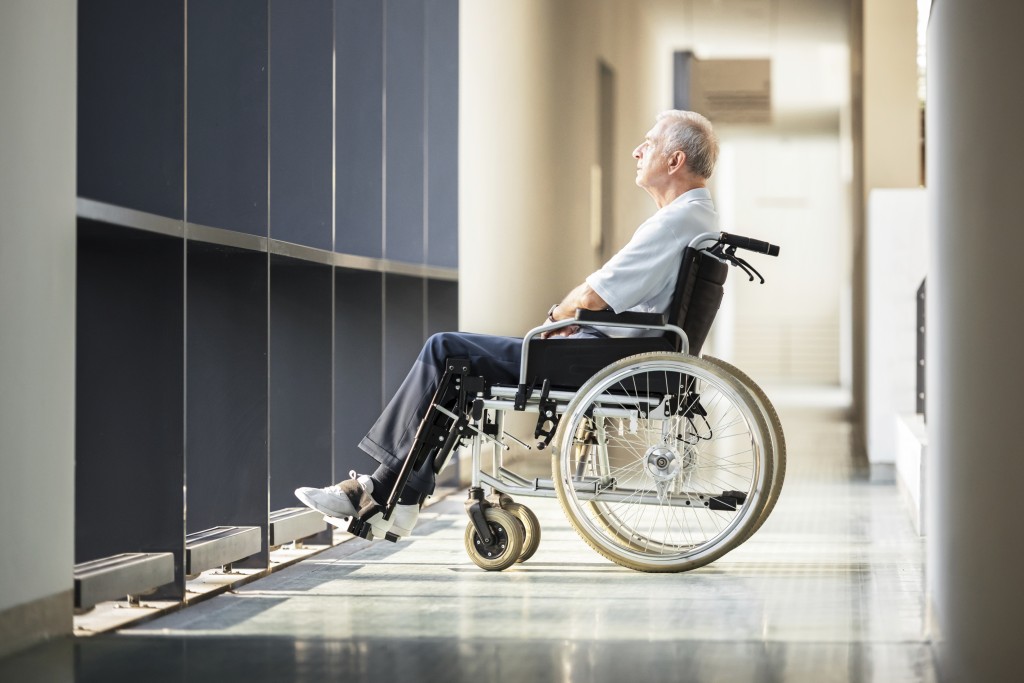
“Ask Phil,” aims to help older Americans and their families by answering their health care and financial questions. Phil is the author of the book, “Get What’s Yours for Medicare,” and co-author of “Get What’s Yours: The Revised Secrets to Maxing Out Your Social Security.” Send your questions to Phil.
Surprise medical bills — for procedures that people later learn are not covered by insurance – are drawing increasing government scrutiny in Washington, with House Democrats planning hearings on ways to curb such charges.
In a rare show of bipartisanship, Republicans have promised to work with their Democratic counterparts to find solutions.
“Workers and families deserve certainty about their health care coverage,” Rep. Tim Walberg, R-Mich., said during a hearing on surprise medical bills Tuesday.
Federal rules generally prevent people on Medicare from being hit with such surprise charges. However, Americans need to be aware of a major hole in Medicare’s safety net. It concerns people who need skilled nursing care after being hospitalized for a health issue.
Such care is covered by Medicare, but only if the person has been formally admitted to the hospital as inpatients for at least three days. Hospitals also are free to admit people as outpatients for what is technically called observational care. Outpatients, it turns out, are not covered by Medicare for subsequent nursing needs. And in recent years, more people have been classified by hospitals as outpatients.
Outpatient care involves treatment that is identical in some cases to inpatient care. But it is generally covered under Part B of Medicare, whereas inpatient care is covered by Part A. This different coverage sometimes has a huge impact on a patient’s ultimate out-of-pocket expenses, as noted in a previous Ask Phil column.
For example, a person on original Medicare is responsible for paying 20 percent of all covered Part B expenses. This exposure is a main reason many people with original Medicare also buy private Medigap supplemental insurance plans that pay the Part B expenses not paid by Medicare. Part A, by contrast, pays 100 percent of expenses for inpatient care after a person has satisfied Part A’s annual deductible ($1,364 in 2019).
In addition, roughly 3 million Medicare beneficiaries have only Part A of Medicare and not Part B, and thus would be responsible for all outpatient hospital expenses.
The Centers for Medicare & Medicaid Services (CMS), which sets coverage rules, has tried to ease this problem by imposing limits in 2016 on what hospitals can charge for outpatient services. It also has tried to limit the use of observational stays.
However, the problem has not gone away, and people admitted to hospitals as outpatients will not be covered by Medicare if they need to be transferred to a skilled nursing facility. The costs of extended nursing home stays can be enormous.
In the past, patients often did not even know if their hospital care was being handled on an inpatient or outpatient basis. Some patients did not learn their subsequent nursing care would not be covered until they arrived at a nursing home for admission and were given the bad news.
Currently, patients have no formal right to appeal the hospitals’ decisions to classify them as outpatients. Hospitals, however, are free to ask Medicare to reconsider whether they should be compensated for care under Part A or B or Medicare and are successful in more than 60 percent of such appeals, according to testimony in an ongoing lawsuit concerning the issue.
Currently, patients have no formal right to appeal the hospitals’ decisions to classify them as outpatients.Hospital care can be physically and emotionally taxing. Many patients are older and frail, and few are equipped to tangle with their doctors or hospital administrators about the ground rules for their care. They look to hospital staff to take care of them and help them get better, not to expose them to additional health and financial problems.
Patient advocacy groups have long complained about the implications of being treated as an outpatient. Congress responded to such concerns by enacting a law that took effect last year requiring hospitals to formally tell patients if they had been admitted as outpatients. This is a good first step, but it does not eliminate the problem.
As part of ongoing litigation — a class-action suit filed more than seven years ago — the Center for Medicare Advocacy seeks to give Medicare enrollees the right to appeal hospital outpatient admission decisions and strengthen consumer rights.
CMS has repeatedly tried to get the case dismissed, but a U.S. district court last week once again rebuffed that effort and kept the case alive. A CMS spokesman said the agency was actively reviewing the court decision to determine an appropriate response.
One patient’s experience, cited by the judge in his ruling, involved a man with a shoulder injury who spent six days in a hospital but was later billed for his subsequent nursing home care. “He contacted the hospital,” Judge Michael P. Shea wrote in his opinion, “and was told that ‘the powers that be’ had placed him on observation status. He testified that his treating physician appeared ‘aghast’ upon learning that his inpatient order has been overridden.”
In another case, a physician caring for a woman admitted as an outpatient felt she needed skilled nursing care. He understood Medicare would not pay for such care but was still able to keep her in the hospital on observation status for 40 days.
After nearly eight years, and after all of the named plaintiffs have passed away, it looks like the case is finally headed for trial.
ncG1vNJzZmivp6x7sa7SZ6arn1%2Bjsri%2Fx6isq2eVmLyvu8yyZqaZm567qHnSnqWsnV%2BdvLh506GgrGWdmrGqr8CrnGakn6S9qbvLnmScmZ5iuaatw2arqGWjqr%2BxvsisnGallZm2pK3LZpmipJyo